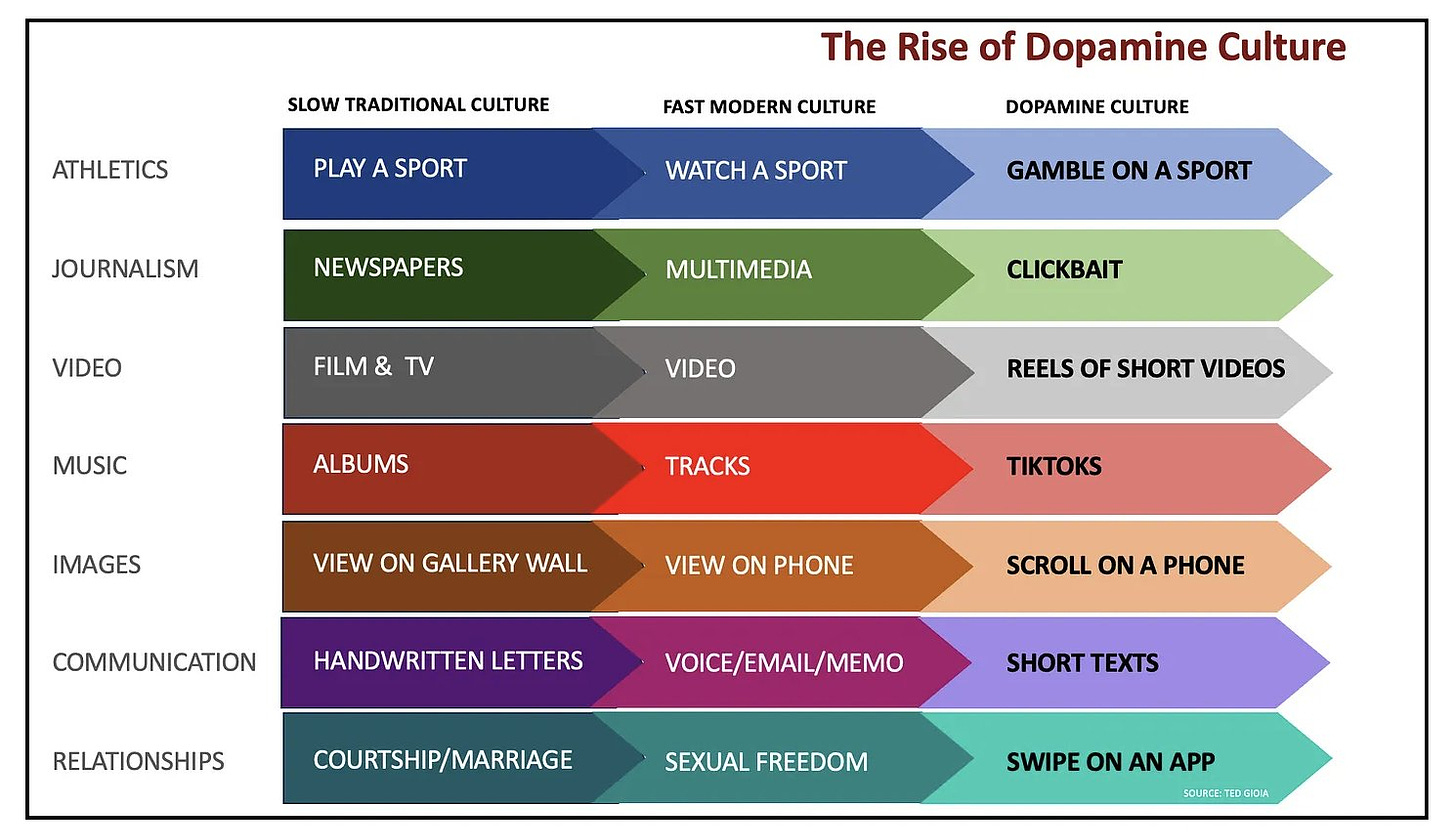1. Dopamine Culture
“Every kind of organized distraction tends to become progressively more and more imbecile.” — Aldous Huxley
The delay between desire & gratification is shrinking. Pleasure is increasingly more instant & effortless. Everything is becoming a drug. What will it do to us?
2. False Consensus Effect
“Everyone driving slower than you is an idiot and everyone driving faster than you is a maniac.” — George Carlin
Our model of the world assumes people are like us. We don’t just do whatever we consider normal, we also consider normal whatever we do.
3. Fredkin's Paradox
The more similar two choices seem, the less the decision should matter, yet the harder it is to choose between them. As a result, we often spend the most time on the decisions that matter least.
To avoid being paralyzed by meaningless choices, use decision-making heuristics.
4. Package-Deal Ethics
“If I can predict all of your beliefs from one of your beliefs, you’re not a serious thinker.” — Chris Williamson
Being pro-choice and being pro-gun-control don’t necessarily follow from each other, yet those who believe one usually also believe the other. This is because most people don’t choose beliefs individually but subscribe to “packages” of beliefs offered by a tribe.
5. Ovsiankina Effect (aka Hemingway Effect)
We have an intrinsic need to finish what we’ve started. Exploit this by taking your breaks mid-task; the incompleteness will gnaw at you, increasing your motivation to return to work. (When writing, I end each day mid-sentence because it
6. Naxalt Fallacy
Smart people tend to use qualifiers like “generally” and “most”, and dumb people tend to ignore them.
“Most people who are pro-choice are also pro-gun-control.”
“Wrong! I’m not!”
“Men are generally taller than women.”
“False! My wife is 7 feet tall!”
9. Gambler’s Conceit
People hooked on a risky behavior (e.g. gambling, smoking) reassure themselves they’ll be able to quit while ahead (before bankruptcy, lung cancer). However, their future-self tends to act a lot like them, so if they can't quit now, they likely won't quit later when they’re even deeper in. (...)
11. Noble Cause Corruption
The greatest evils come not from people seeking to do evil, but people seeking to do good and believing the ends justify the means. Everyone who was on the wrong side of history believed they were on the right side.
People hooked on a risky behavior (e.g. gambling, smoking) reassure themselves they’ll be able to quit while ahead (before bankruptcy, lung cancer). However, their future-self tends to act a lot like them, so if they can't quit now, they likely won't quit later when they’re even deeper in. (...)
11. Noble Cause Corruption
The greatest evils come not from people seeking to do evil, but people seeking to do good and believing the ends justify the means. Everyone who was on the wrong side of history believed they were on the right side.
by Gurwinder, The Prism | Read more:
Images: uncredited

